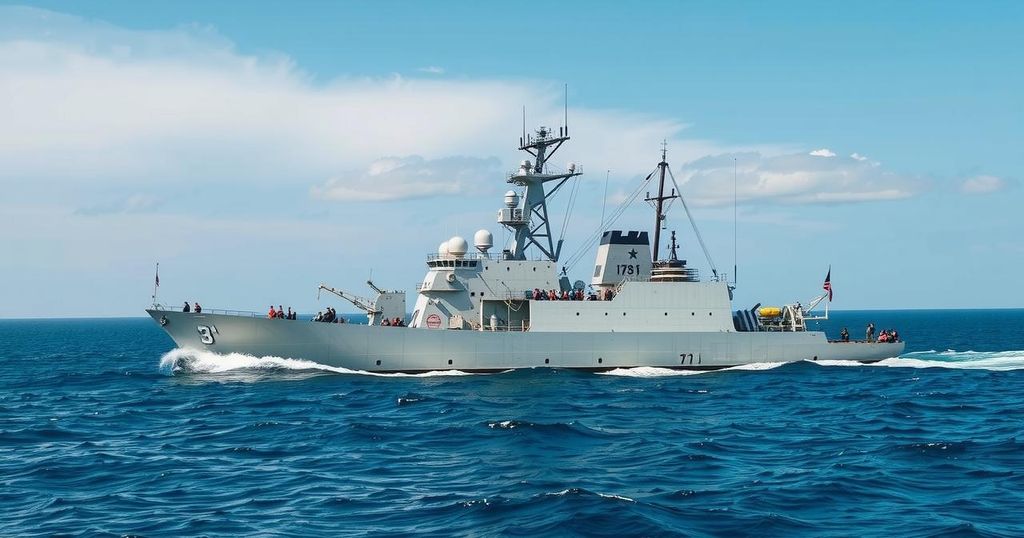G7 Condemns Venezuela’s Naval Threats Against Guyana’s Sovereign Rights
The G7 has condemned Venezuela’s naval threats against Guyana’s EEZ, calling them “unacceptable” and a violation of Guyana’s sovereign rights. The G7 reaffirmed support for Guyana and urged Venezuela to cease aggressive maneuvers. Tensions have intensified, particularly concerning the Essequibo region. The G7 also condemned Venezuela’s domestic political situation, advocating for democracy and human rights. The ICJ’s role in the border dispute is anticipated to be significant.
The G7 nations have condemned Venezuela’s ongoing naval incursions into Guyana’s Exclusive Economic Zone (EEZ), characterizing such actions as “unacceptable” and a breach of Guyana’s internationally recognized sovereign rights. Following a meeting in Quebec, Canada, foreign ministers from G7 member states reaffirmed their support for Guyana and urged Venezuela to halt its aggressive maneuvers near Guyanese waters, specifically referencing a March 1 incident involving a Venezuelan naval vessel close to ExxonMobil’s oil production site in the Stabroek Block.
The G7 statement emphasized that Venezuelan naval threats against Guyanese commercial vessels constitute a clear infringement on Guyana’s sovereign rights. The foreign ministers reiterated their commitment to respecting the sovereignty and territorial integrity of all nations as a fundamental principle, asserting the importance of Guyana’s rights over its maritime territory.
Recent months have seen heightened tensions between Venezuela and Guyana, with Venezuela announcing plans to hold elections on May 25, 2025, to appoint a governor for Guyana’s Essequibo region, which encompasses two-thirds of the territory. Guyana has categorized this announcement as an unlawful attempt to annex its lands, prompting it to seek intervention from the International Court of Justice (ICJ) to prevent any detrimental actions affecting Essequibo or its inhabitants.
In addition to the maritime disputes, the G7 expressed its concern over Venezuela’s domestic political crisis, advocating for the restoration of democratic governance, the liberation of political prisoners, and an end to the suppression of peaceful protests stemming from the contentious July 28, 2024, elections. As Guyana fortifies its diplomatic and legal strategies, both regional and international actors are closely watching the developments concerning Venezuela’s behavior. The ICJ, currently deliberating on the long-standing border dispute, is anticipated to play a pivotal role in resolving the territorial contention.
The G7’s condemnation of Venezuela’s naval incursions into Guyana’s EEZ highlights the international community’s support for Guyana’s territorial rights. With escalating tensions surrounding the Essequibo region and Venezuela’s internal political crisis, the call for cessation of aggressive actions and respect for sovereignty remains critical. The ICJ’s involvement is crucial in addressing the longstanding border dispute, as global stakeholders monitor the situation closely.
Original Source: www.caribbeannationalweekly.com




Post Comment